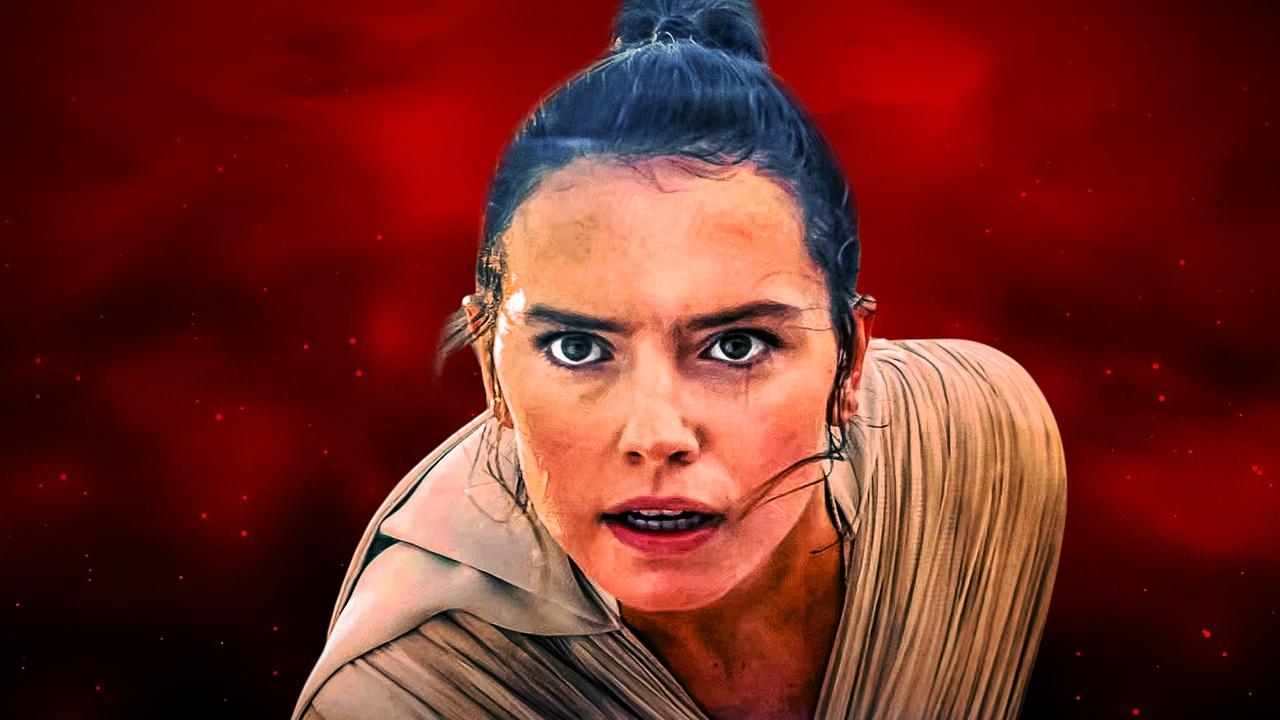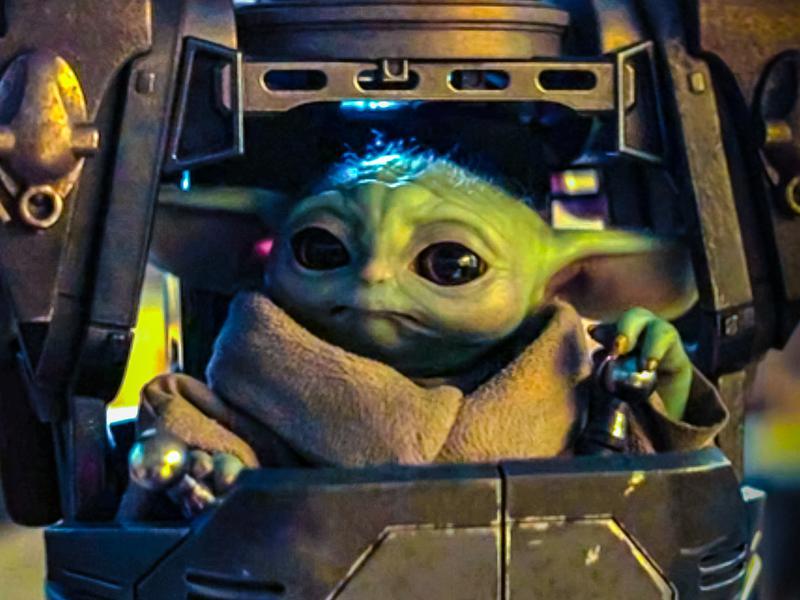
Star Wars is making a comeback to cinemas with “The Mandalorian and Grogu”, set for release on May 22, 2026. This marks the first big screen appearance of the franchise in seven years, following its move to Disney+ programming which started in 2019. Since then, Lucasfilm has produced a total of 7 live-action series containing 85 episodes. The shift in strategy by Disney and some issues at Marvel Studios have raised questions about whether this new film can once again replicate the box office success that Lucasfilm is known for.
In the transition to a fresh era for streaming services, Disney leveraged the cinematic Star Wars universe as a key element during this decade’s culmination. On its 2019 release, Disney+ made a grand entrance with their premier Star Wars production, “The Mandalorian.
Immediately successful, “The Mandalorian” aired additional seasons, consistently ranking among the most-watched shows on the streaming service. Meanwhile, during that period, Disney+ leaned heavily on Marvel Studios to produce original content for their platform, with their first series not premiering until 2021, specifically, “WandaVision”.
In essence, Disney’s vision for the future seemed to lean heavily on their acquisitions of Marvel and Star Wars in 2009 and 2012, respectively. They have been extensively utilizing these franchises in cinemas ever since.
It’s challenging to dispute the impact Disney+ may have on reducing Marvel’s earnings from box office sales, with Star Wars potentially experiencing similar effects in the future.
In 2025, one Marvel Cinematic Universe film garnered a 88% rating on Rotten Tomatoes, featured a prominent Hollywood actor, brought together a new version of The Avengers… yet it became one of the most financially disappointing films for the studio in history.
In a somewhat unique twist, the film titled “Thunderbolts*” received rave reviews from critics and fans alike but failed to spark interest in cinemas. This scenario would have been unheard of during the 2010s when Marvel was at its box-office zenith. The critically panned “Thor: The Dark World” went on to make a staggering $564.4 million (equivalent to over $700 million in current dollars) more than “Thunderbolts*” at the global box office.
So the question becomes, “Why did Thunderbolts* flop?”
The strong connections a film has with its characters and content on Disney+’s platform are undoubtedly significant contributors to its box office success or overall achievement.
If you regard “Black Widow” as a product distributed by Disney+ due to its simultaneous release, it’s worth noting that except for Hannah John-Kamen’s character, Ghost, the most recent appearances of the Thunderbolts team have been on streaming platforms.
In more casual terms, Sebastian Stan, known for his roles in the Marvel Cinematic Universe, recently appeared as Bucky Barnes in “The Falcon and the Winter Soldier” (excluding his brief appearance in “Captain America 4”). This is where Wyatt Russell made his entrance as John Walker for the first time.
Simultaneously, actors Florence Pugh and David Harbour took on significant parts in the production. Notably, you might recall that Pugh’s character, Yelena, was recently featured on Disney+’s Hawkeye, as recent as the year 2021.
This foundation of Disney+-driven characters turned out to be flimsy.
With Star Wars moving its content focus back towards cinema, there’s a concern that “The Mandalorian and Grogu” may not live up to the blockbuster success that Lucasfilm and Disney anticipate at the box office.
Initially, “The Mandalorian” was Disney+’s standout show, but its third season showed a significant drop in quality and viewer engagement.
Enhancing the already existing uncertainty is Disney’s release strategy for the new Star Wars movie. Typically, Star Wars films have achieved their greatest success during December holiday seasons. However, this upcoming movie is scheduled for May instead. Unfortunately, the same May slot didn’t fare well for Solo: A Star Wars Story, which earned approximately one-third of the average Star Wars film revenue in the late 2010s, totaling around $392.9 million worldwide.
With an intense affection towards Disney+ shows, particularly The Mandalorian and Grogu, a combination of elements seems to be setting up for a potential disaster. This situation could lead to Lucasfilm pressing the emergency button in response.
Is Star Wars Now A TV Brand?

Due to the COVID-19 pandemic, Lucasfilm has been influencing viewers to perceive Star Wars more as a series for television instead of primarily a cinematic production.
The outcomes have varied, yet it’s indisputable that the change has made an enduring mark. It’s fair to say that Grogu, or what many call Baby Yoda, gained extraordinary global fame, and his massive popularity likely plays a significant role in this film being produced.
Regarding its reputation, Seasons 1 and 2 of Andor have received widespread acclaim, being hailed as exceptional Star Wars storytelling that competes with the finest films and animated series in the franchise.
Although we’ve had our fair share of triumphs, not every series we’ve produced has been universally successful. Case in point: “The Acolyte” has stirred quite a bit of debate, as some viewers found issues with its narrative and direction, while others perceived it as overly progressive or “woke.
Moving forward, it’s worth noting that only one more live-action season is under production at present – the second season of “Ahsoka.” Given the significant fanbase for this character and the dramatic cliffhanger ending in the first season, there seems to be a high likelihood that this show will be successful.
In essence, Lucasfilm finds itself in a period of transformation. Having cultivated its identity over years within Disney+’s realm, the franchise is now aiming to reaffirm itself on traditional cinema screens once more.
The pairing of The Mandalorian and Grogu serves as the initial litmus test to gauge audience interest. Despite being projected as one of the top movies of 2026, there’s still uncertainty: will its streaming platform on Disney+ provide an advantage, or pose a challenge?
Read More
- Clash Royale Best Boss Bandit Champion decks
- Vampire’s Fall 2 redeem codes and how to use them (June 2025)
- World Eternal Online promo codes and how to use them (September 2025)
- Best Arena 9 Decks in Clast Royale
- Country star who vanished from the spotlight 25 years ago resurfaces with viral Jessie James Decker duet
- M7 Pass Event Guide: All you need to know
- Mobile Legends January 2026 Leaks: Upcoming new skins, heroes, events and more
- Kingdoms of Desire turns the Three Kingdoms era into an idle RPG power fantasy, now globally available
- Solo Leveling Season 3 release date and details: “It may continue or it may not. Personally, I really hope that it does.”
- JJK’s Worst Character Already Created 2026’s Most Viral Anime Moment, & McDonald’s Is Cashing In
2025-09-04 10:36